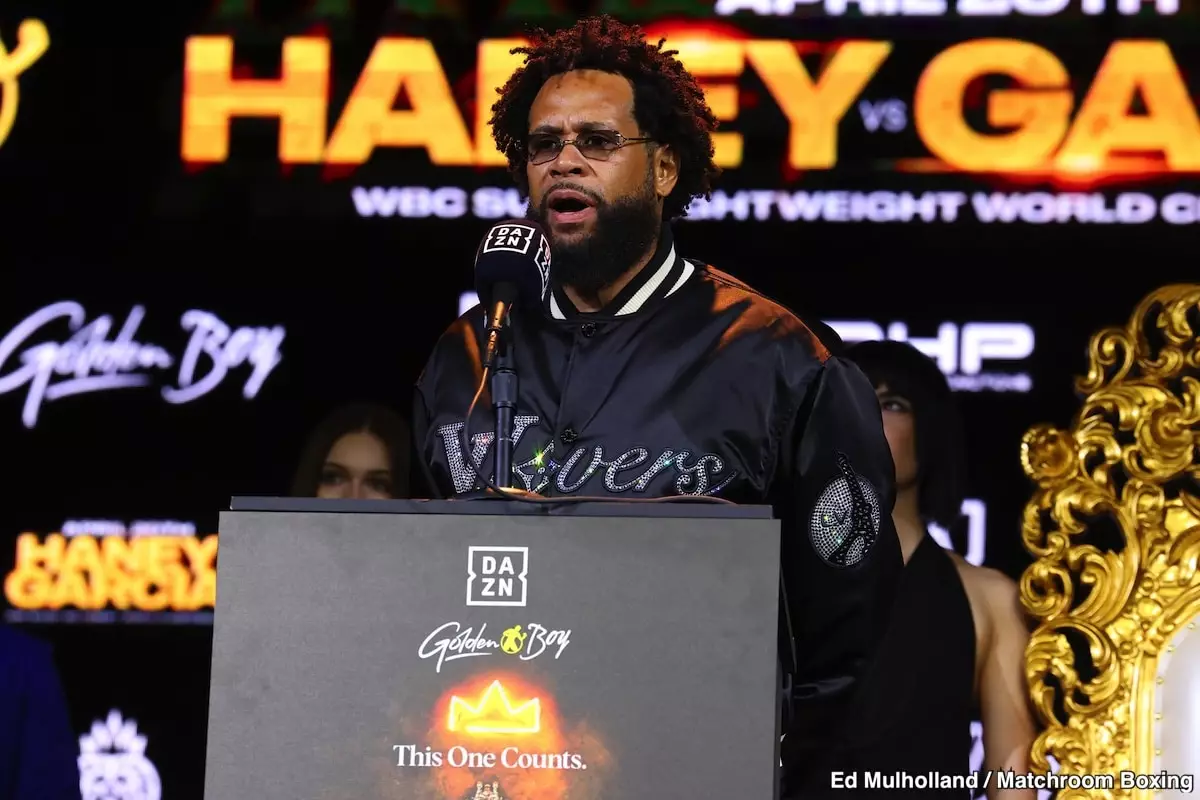In the world of boxing, the drama often extends beyond the ring, entering the realm of courtroom battles and legal disputes. A recent lawsuit filed by Devin Haney against fellow boxer Ryan Garcia has ignited a controversy, reflecting the tense relationship between athletes, promoters, and the legalities of the sport. Bill Haney, Devin’s father and promoter, has vocalized his thoughts on the matter, framing the lawsuit as a necessary step in an industry rife with unfair practices. This article delves into the nuances of the case, exploring the implications it may have on both fighters and the industry itself.
The backdrop to this legal confrontation is Haney’s fight against Garcia, which took place on April 20th at the Barclays Center in Brooklyn, New York. During this bout, Haney endured significant punishment, leading to a majority decision loss that many observers viewed as questionable given the circumstances of the fight. The controversy escalated when Ryan Garcia tested positive for the banned performance-enhancing drug Ostarine, triggering Haney’s lawsuit seeking punitive damages.
Bill Haney argues that lawsuits are an inevitable aspect of professional boxing, highlighting a double standard in the industry’s approach to legal matters. He raises poignant questions regarding the circumstances under which Golden Boy Promotions—a major boxing promotional company—received a substantial $1 million in damages for what he perceives to be an unfounded claim. His assertion hinges on the belief that, as the fighter who suffered the brunt of the contest, Devin is the one deserving of compensation rather than the promoters reaping benefits from dubious situations.
At the heart of the lawsuit lies serious accusations: Haney is suing Garcia for battery, fraud, and unjust enrichment. The implications of these allegations suggest that the fight’s outcomes not only bear monetary significance but also crucially impact the fighters’ reputations. After New York’s Athletic Commission reversed Haney’s defeat to a no-contest due to Garcia’s doping violation, the ramifications for Haney’s career trajectory and public perception are profound.
Bill Haney elaborates on the emotional and physical toll that the loss took on Devin, describing how the reputation of a fighter is intrinsically linked to their performance within the ring. Before this contentious bout, Devin was seen as a rising star; after it, his image was tainted, forcing him to grapple with the consequences of an unfair fight. This lawsuit is perceived not just as a quest for reimbursement but as a means of reclaiming personal and professional integrity.
While the amount sought in damages remains undisclosed, analysts speculate that a successful lawsuit could have considerable financial implications, especially considering Garcia’s potential for immense future earnings. Should Haney prevail, the settlement could amount to millions, especially given the spotlight that these legal battles shine on the sport. The potential for a substantial payout could serve as a precedent and a deterrent for future cases involving doping and unfair practices in boxing.
Bill Haney’s comments on the situation serve to underscore a broader critique of the boxing industry. He references past legal disputes involving other prominent figures in boxing, indicating an ongoing tradition of litigation that reflects a discontent with the status quo in the sport. By likening Devin’s battle to those faced by legendary figures, he elevates the significance of their struggle, situating them within a historical context that advocates for justice and fairness.
The legal tussle between Devin Haney and Ryan Garcia encapsulates the growing complexities within modern boxing. With the world watching, this case could signify a transformative moment, challenging existing power dynamics and emphasizing the need for accountability within the sport. As explosive as the action is within the ring, perhaps even more consequential battles lay ahead in the courts, potentially reshaping the future of boxing and its myriad stakeholders. Bill Haney’s decision to vocalize his perspective adds a crucial narrative to the ongoing debate over ethics, legality, and the true spirit of competition in boxing.

